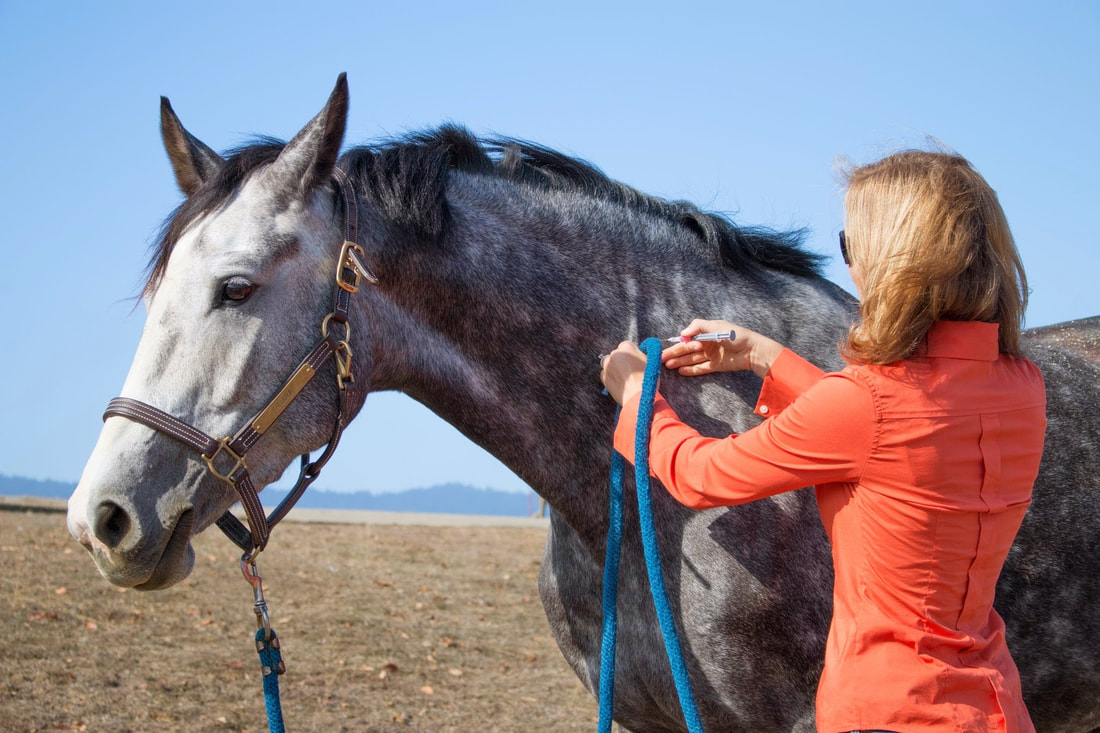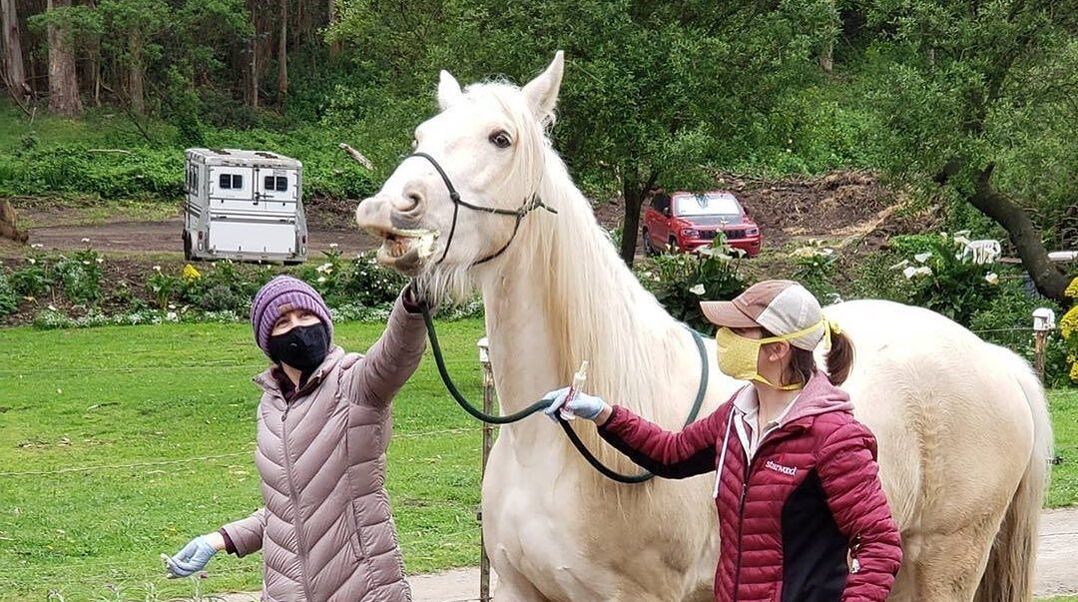|
Since first being recognized in the United States in 1999, West Nile virus (WNV) has posed a serious threat to horses and humans alike. In the equine population, the virus is transmitted when a mosquito takes a blood meal from a bird infected with WNV, then feeds on a horse. While many horses exposed to WNV experience no signs of illness, the virus can cause inflammation of the brain and spinal cord. In some cases, especially in older horses, WNV can be fatal. As a horse owner, prevention is the key to reducing your horse’s risk of contracting WNV. Follow these guidelines from the American Association of Equine Practitioners (AAEP) to protect your horse against WNV:
For more information about the virus, contact the Starwood Equine office. Additional information about WNV can be found on the AAEP’s website at http://www.aaep.org.
Reprinted with permission from the American Association of Equine Practitioners.
0 Comments
Internal parasites are silent killers. They can cause extensive internal damage, and you may not even realize your horses are heavily infected. At the very least, parasites can lower resistance, rob the horse of valuable nutrients and cause gastrointestinal irritation and unthriftiness. At their worst, they can lead to colic, intestinal ruptures and death. Using deworming agents on a regular schedule in combination with good management procedures is critical to relieving your horse of most parasites. Since parasites are primarily transferred through manure, good management is key. In terms of management priorities, establishing a parasite control program is probably second only to supplying the horse with clean, plentiful water and high-quality feed. To get rid of parasites before they attack your horse, follow these suggestions from the American Association of Equine Practitioners (AAEP)
With the many safe, convenient products available today, establishing an effective deworming program is easy. Discuss a plan with your veterinarian and implement it without delay. A good parasite control program will go a long way toward maximizing your horse’s appearance, performance and comfort. The net result will be an animal that is as healthy on the inside as it appears on the outside.
For more information about on equine parasites, contact the Starwood Equine office. Information about equine parasites also can be found on the AAEP’s website www.aaep.org/. Reprinted with permission from the American Association of Equine Practitioners |
Topics
All
Archives
May 2021
|
Privacy Policy | Copyright © 2019 Starwood Equine Veterinary Services, Inc. All rights reserved.



 RSS Feed
RSS Feed